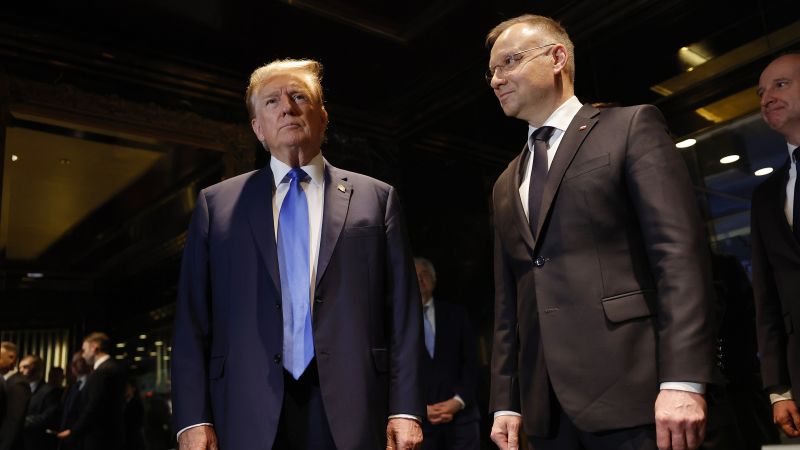Former President Donald Trump and Polish President Andrzej Duda met at Trump Tower in New York City to discuss NATO spending, particularly Duda’s proposal for all member states to increase their defense spending to 3% of GDP, up from the current 2%. Duda has emphasized the need for this increase in response to the conflict between Russia and NATO’s eastern border. This proposal was also reiterated to President Joe Biden during a previous meeting in March.
The meeting between Trump and Duda also covered the ongoing war between Russia and Ukraine, as well as the Israel-Hamas conflict in the Middle East. Trump, the presumed GOP nominee, has been critical of NATO defense spending, stating that any member country failing to meet spending guidelines on defense should face consequences. This stance has raised concerns among leaders in Washington and Europe, as they prepare for the possibility of Trump’s return to the White House.
European diplomats are reportedly taking steps to establish guard rails for NATO and ensure continued support for Ukraine in its war with Russia in anticipation of Trump potentially regaining the presidency. Trump’s comments regarding NATO defense spending and his willingness to allow Russia more flexibility have sparked alarm among many leaders. This has led to diplomatic efforts to address these concerns and maintain stability within the alliance.
Duda’s proposal for NATO countries to increase defense spending comes at a time of heightened tensions with Russia and ongoing conflicts in various regions. The push for greater financial contributions to defense efforts reflects a broader reassessment of global security measures and the need for stronger defenses in the face of emerging threats. The discussions between Trump and Duda underscore the evolving dynamics within NATO and the importance of adapting to meet new challenges.
The meeting between Trump and Duda also serves as a platform for dialogue on key international issues, including the conflicts in Ukraine and the Middle East. The exchange of views between the two leaders highlights the complexity of modern geopolitical challenges and the need for collaborative approaches to address them. As discussions continue on NATO spending and global security concerns, the outcomes of these meetings will likely have implications for future alliances and cooperation in addressing shared threats.
Overall, the meeting between Trump and Duda showcases the ongoing efforts to navigate complex geopolitical landscapes and ensure robust defense capabilities among NATO member states. The discussions on defense spending, conflicts in various regions, and broader security concerns underscore the importance of strategic partnerships and coordinated responses to global challenges. As leaders continue to engage in dialogue and pursue diplomatic solutions, the evolving nature of international relations will require ongoing adaptation and cooperation to promote stability and security in an unpredictable world.


